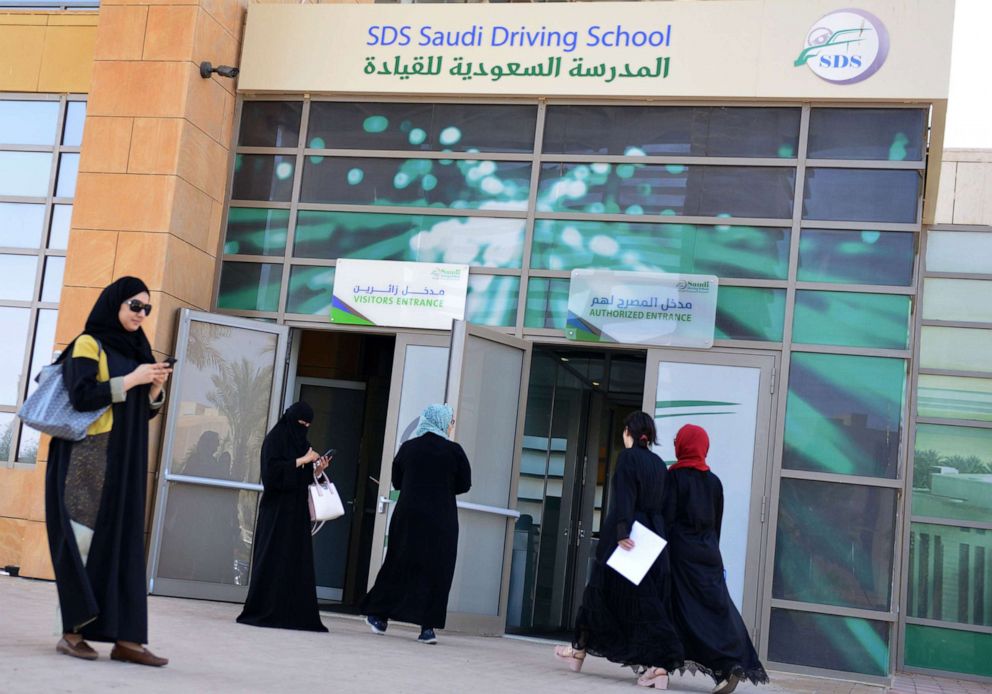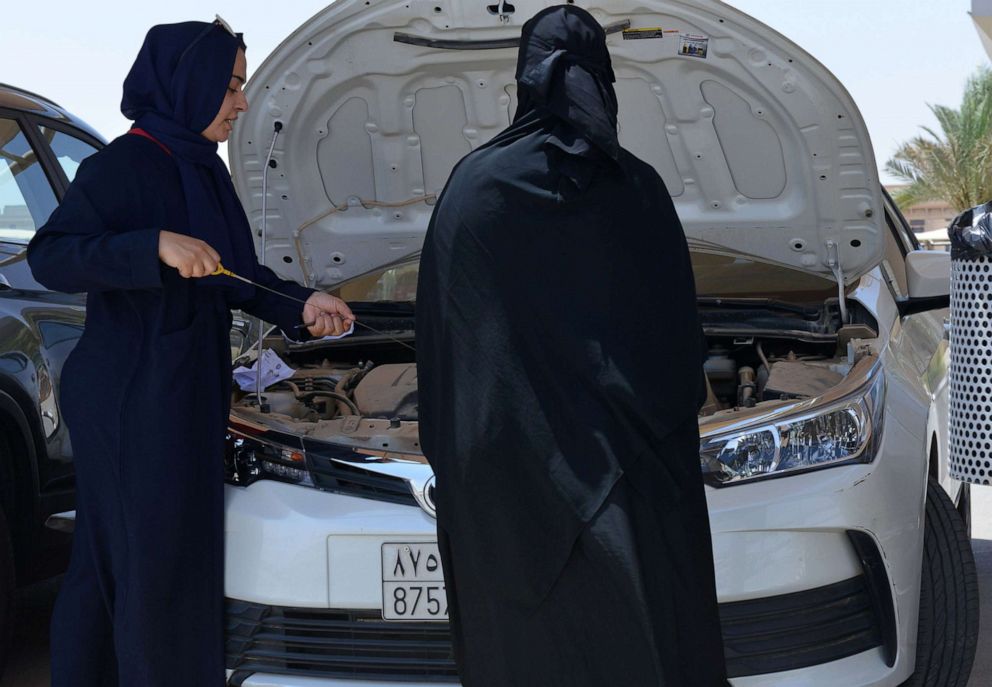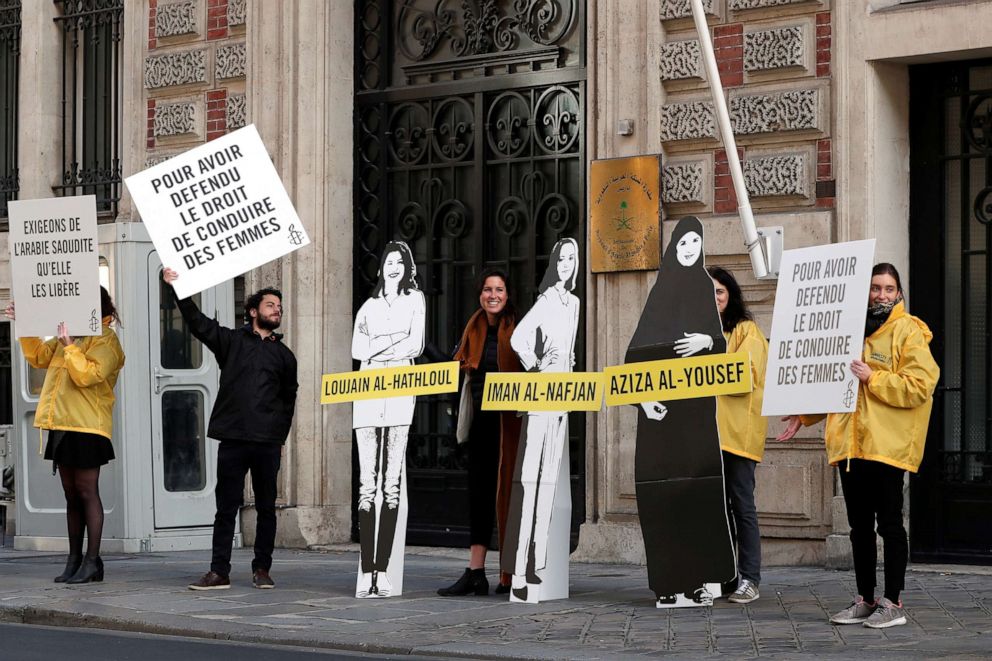The journey to nowhere: Little hope for Saudi women since driving ban was lifted
A year after Saudi Arabia's women won the right to drive, life hasn't improved.
Beirut, Lebanon -- In June 2018, the future seemed a little brighter for Saudi Arabian women. Home to one of the most repressive societies on earth, the Kingdom of Saudi Arabia was finally taking steps to lift the ban that had prevented women from driving. At last, women would be free from the need to rely on males for their basic ability to move around.
A staunchly conservative and religiously orthodox country, Saudi Arabia embraces and enforces a strict, all-encompassing version of Islam called Wahhabism. The laws of the religion are one and the same as the laws of the state. Gender segregation rules are strictly observed and the idea of a woman behind the wheel, driving herself wherever she chooses with no man accompanying her, was seen by many as scandalous, even sacrilegious.
Eliminating gender-based driving restrictions was an earth-shattering change that gave hope to millions of Saudi women.
The lifting of the driving ban was presented in 2017 by Crown Prince Mohammed bin Salman (commonly referred to by his nickname, MBS) as part of a sweeping initiative to modernize and diversify the economy away from a heavy reliance on oil. In order to attract foreign investment, the idea was to align some part of Saudi society with the rest of the world. It was hailed by Saudi rulers and much of the rest of the world as a great feminist leap forward.
In just the first seven months after the ban was lifted, as many as 40,000 women were issued driving licenses, according to Saudi Arabia's traffic department.
But apart from driving, what else has changed for Saudi women?

"There are two stories here, two narratives," Madawi Al-Rasheed told ABC News. She is a Saudi Arabian scholar and a visiting professor at the London School of Economics and Political Science.
"The first one is that MBS is the greatest thing that has ever happened to Saudi Arabia, especially to women," she said.
Some of the laws governing segregation have been loosened, so now it is possible to see women and men attending sporting events and concerts together. Women are also allowed a voice in public discussion and can be found speaking at press conferences and addressing symposiums.
"Yet, there is another story," Al-Rasheed said. "It is one that says his reforms are being planned by the privileged classes only to serve the privileged classes. There is a greater opening of the public sphere for women but the changes don't come with legitimate rights."
Saudi Arabia's restrictive guardianship system ensures that men still have ultimate control over most aspects of women's lives. Part legal requirement, part custom, Saudi women are dependent upon their male guardians, whether they are fathers, husbands, brothers or even sons. These men have the power to make a range of critical decisions on her behalf for her entire life.
"Women still need permission from their male guardians in two main areas," Al-Rasheed said. "When they want to marry or when they want to get a passport to leave the country."

A few countries in the Middle East still retain some elements of the male guardianship system, although nowhere is as far reaching and restrictive in terms of laws and regulations as Saudi Arabia's.
"The Saudi state essentially treats women as permanent legal minors. Saudi Arabia has done very little to end the system, which remains the most significant impediment to women's rights in the country," as detailed in a report by Human Rights Watch.
According to Dana Ahmed, a Middle East and Gulf researcher for Amnesty International, the inherent control of male family members over almost all aspects of women's lives makes it incredibly difficult for females to seek protection or obtain legal redress if they become victims in their own homes.
"Women in Saudi Arabia remain inadequately protected against domestic violence and abuse and more generally are discriminated against in large part as a result of the male guardianship system," Ahmed told ABC News. "Women who attempt to flee an abusive spouse or family can be arrested and returned to their families."
The situation for Saudi Arabia's civil society and human rights community, including women's rights activists, has deteriorated markedly this past year, including "the torture and sexual abuse of human rights defenders" who have been detained by authorities, she said.
"Today, several women activists are being tried for their human rights work on bogus charges and risk lengthy prison sentences," she noted.
While state reforms have been welcomed by most Saudis, two-thirds of whom are under the age of 30, human rights activists are concerned that even these small nods to a liberal lifestyle could be easily curtailed again at a moment's notice.
"There is no political change happening in Saudi Arabia that will benefit all members of society," Al-Rahseed said. "Execution, even crucifixion, takes place all the time and can be decided at the whim of a judge. There is no independent judiciary, no separation of powers. The judges are appointed by the king."
Indeed, just weeks before lifting the law, the Saudi government initiated a crackdown against women's rights campaigners and arrested more than a dozen activists, including some of the very women who led the petition for the right to drive.

"Authorities started locking up some of Saudi Arabia's bravest women activists, instead of including them in the country's reforms agenda," Ahmed told ABC News. "By targeting them, they are signaling to their entire people that there will be zero tolerance of any form of criticism, let alone questioning, of the state's authoritarian practices."
As recently as March, 11 prominent female activists, including Loujain al-Hathloul, Iman al-Nafjan, and Aziza al-Yousef were brought to trial before the Criminal Court in Riyadh. Ahmed said the court session was closed and diplomats and journalists were banned from attending. Several women activists have been charged with the crimes of contacting foreign media and reaching out to other activists and international organizations including Amnesty International.
Following the court session, Ahmed said, several of the jailed women were temporarily and provisionally released. However, they continue to face trial and remain at risk of being sentenced to prison terms.
"Releasing these women from detention is not enough," Ahmed said. "Saudi authorities must drop all charges against them."
This past spring, a planned "public decency" law seeking to uphold "values and principles" was approved by the Saudi cabinet, although it has not yet been announced when it will go into effect. Aspects of the new measures are intended to curb behaviors such as dressing disrespectfully, including men wearing shorts, avoiding taking photos or using phrases that might offend.
"The main problem in Saudi Arabia is that both men and women are not represented in government, they are denied basic human rights," Al-Rasheed said. "They can be detained and thrown in prison for no reason at all. Emancipation in a dictatorship is impossible."




